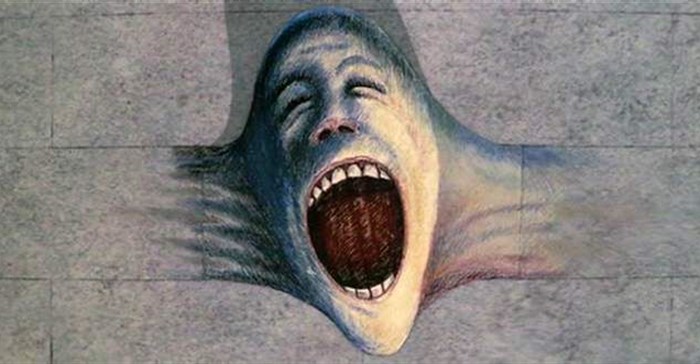
Artwork from the film adaptation of The Wall
Even though it might have been before my time, I grew up listening to Pink Floyd on the regular. I remember Sunday afternoons filled with the dreamy sounds of David Gilmour’s essential guitar solos and Roger Waters’ anomalous-but-compelling vocals and songwriting style. As a child, I had no real appreciation for them - but as a teenager, I started to understand why Pink Floyd is regarded as one of the greatest bands of all time.
And thinking now, can music really be ‘before’ anyone’s time?
Because I connected quite vehemently with something that was conceptualised, created and released 17 years before I was born.
It’s not for everyone, but it is
The Wall tells the story of Pink. From the get-go, we are introduced to a man who is seemingly lost in the abyss of isolation. Born in the final hours of a war that took his father’s life, Pink finds it easier to build a wall around himself to shield his emotions from the world. The wall kept growing - an overbearing mother, the loss of individuality in school, a lost love, and a misplaced identity of a rockstar all pile on the bricks that surround Pink - until we see it topple over in the climax.
When The Wall was originally released, it was the source of division amongst many critics. Some lauded it for its genius, and others were concerned that it was just a mere self-indulgent ‘woe-is-me’ story of a rockstar who had some self-pity issues.
Either way, it was undeniably compelling - an introduction for many to the seduction of music that goes beyond well-constructed tunes.
Comfortably relevant
The themes we find in The Wall are isolation, the realities of societal and government oppression, and the difficulties of living in a world with corporate greed. Sound familiar?
Oppression, in whatever form it comes in, is a difficult topic to deal with. Mostly because it is not something which happens once and we forget about it - we live in a world where it happens every day, to people from all walks of life, and lasts over generations. Mainly, the people who experience it often find themselves struggling to accept their identities, or even have an idea of who they really are at all.
The overall theme in The Wall which struck me most pertinently was the loss of identity and individuality. This shines through particularly, especially in the film adaptation of the album - which includes an unforgettable performance from Bob Geldof.
Although The Wall is a story told from the perspective of one man, we could take the reasons he builds his wall and apply them to our own lives. Perhaps not because we had a father who died in the war; but rather because we have experienced abuse from those who were supposed to love us, or financial stresses are leading us to do things out of character.
The entire world has been experiencing a revolutionary uptake in understanding identity in crisis with the Covid-19 pandemic. A health war of sorts, of our own, that we were woefully unprepared to deal with. Something which has caused many to feel isolated, alone, stressed - and even oppressed by the ways that some governments decided to deal with it.
As such, crises can be both personal and collective - and here we are, 42 years later, still able to personally connect to those themes The Wall so fearlessly put together.
In the flesh
“Hey you, standing in the aisles
With itchy feet and fading smiles
Can you feel me?
Hey you, don't help them to bury the light
Don't give in without a fight.”
I could spend years dissecting the lyrics from each song, but I want to leave you with these.
Arguably, the cultural significance of The Wall lies more with the metaphorical than the physical issues we are dealing with today. It is undeniable, however, how its timelessness comes through in waves - through its lyrics, its pain, and the fact that we are almost half a century away from its release and dealing with the same traumas.
Even though it was essentially the crux of Pink Floyd’s eventual breakup - we can be grateful for its existence, and the marvellous addition it is to the idea of feeling through music.
























































